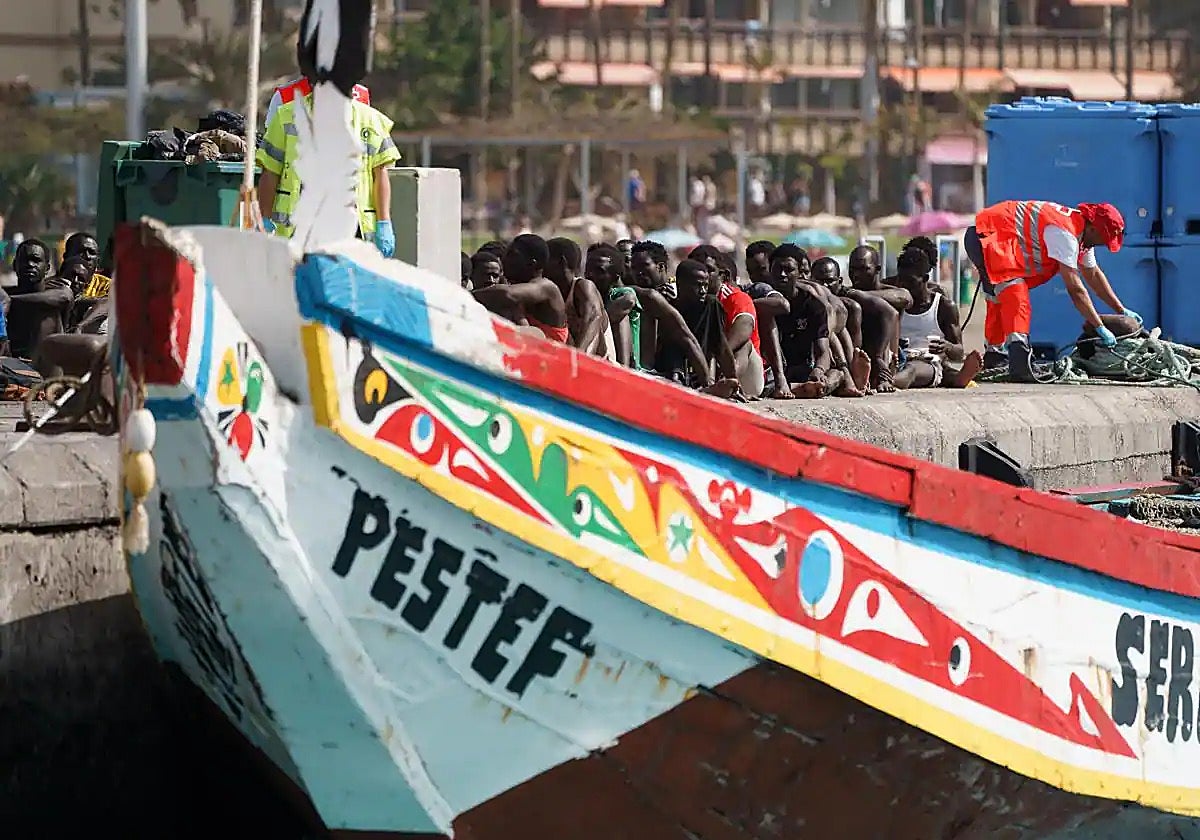Proposal to change immigration law so Spanish regions with less demand can accept migrant children
It comes amid a humanitarian crisis in Spain, with thousands of unaccompanied migrant minors arriving on the shores of Ceuta, Melilla and the Canary Islands
Underage and unaccompanied migrants who arrive to areas in Spain dealing with a high number of boat arrivals could be transferred to other regions where there is less demand, under a proposed reform of the country's immigration law.
The latest rescue of a boat-full of migrants on Monday 22 April near the coast of Tenerife is the latest in a constant stream of vessels ending up on the Canary Island. However, the area is becoming more saturated, especially in the wake of the latest humanitarian crisis.
The situation has triggered minister of territorial policy Ángel Víctor Torres to hold a meeting with Canary Islands president Fernando Clavijo Batlle to discuss reforming the immigration law in relation to unaccompanied migrant minors. Until now, the responsibility has fallen under respective regional governments. However, a change is being proposed to make the transfer of these minors compulsory when there is an overload of migrant arrivals. The proposal will need to be supported in the congress and senate.
If the reform in the immigration law is approved, it will affect primarily the Canary Islands, Ceuta and Melilla, which are currently swamped with migrants. The legislative change proposes the maximum capacity for arrivals be set at 150%. Once arrivals exceed this figure, minors will be transferred to other regions where there is less demand. The objective, as the Canary Islands president pointed out, is "to be able to offer the necessary quality care to the children who arrive".
Saturated
In the specific case of the Canary Islands, the maximum number of unaccompanied minors that can be cared for with its available resources is currently 2,500 - there are currently around 6,000 children in its facilities.
Under the proposed law reform, if this number continues to increase, the new children arriving on its shores would be transferred to other regions which have the resources to care for them. The deadline for implementing their transfer is still under negotiation, but could be a maximum of 15 days, according to Víctor Torres and Clavijo Batlle.
This is not the only legislative change the reform would entail. It would also establish mandatory transferral once regions declare they are saturated. Until now the "solidarity" of the regions was advocated, so they could reject the arrival of these migrants. However, under the proposed reform, regional governments would not be able to oppose the transfer and reception of child migrants.
Discrepancy in the Aliens Act
Although both leaders have stressed their commitment to alleviate the situation in the Canary Islands, Ceuta and Melilla, there are still some points of disagreement. For this reason, they assured they will continue negotiating and agree on all points by the time the proposal is presented at an inter-ministerial meeting which will be held in two weeks' time. "We are all clear that the general interest of the minor must prevail so that they can be cared for and thus guarantee them the best future and the best integration," Clavijo Batlle said. "Parents must be very desperate to put their children on a boat without having a clear idea of what their future might be," he added.
Both the minister and the Canary Islands president have underlined their intention to continue working on the three issues on which they have not yet reached consensus. One of them is the format in which the regulation would be made: a decree law or a proposed law.
Who assumes guardianship?
The second point on which they have shown opposing positions is who assumes guardianship of the child. The government maintains it should be the region where they have arrived, despite the fact they are to be transferred to another place. However, Clavijo considered "the most logical thing" is that the regional government should be in charge of their care. The reason? Because the "bone tests" (to check whether or not the migrant is a minor) and the procedures to change the place of guardianship would lengthen the process beyond the maximum year the regions would have to transfer the child. "Our resources would continue to be saturated and the reform would not provide a solution to this humanitarian crisis," the Canary Islands president pointed out.
The final point of disagreement is the maximum quota the regions could take on when they are totally saturated. For the ministry of territorial policy, the limit of 2,500 minors is correct. However, the Canarian councillor considers it should be reviewed in the future. "It is true that right now, when we have nearly 6,000 unaccompanied minors, it is an important relief. However, I believe that it will be an amount that should be reviewed in the future to try to reduce it even further so that we can better attend to all these vulnerable children," he added.

